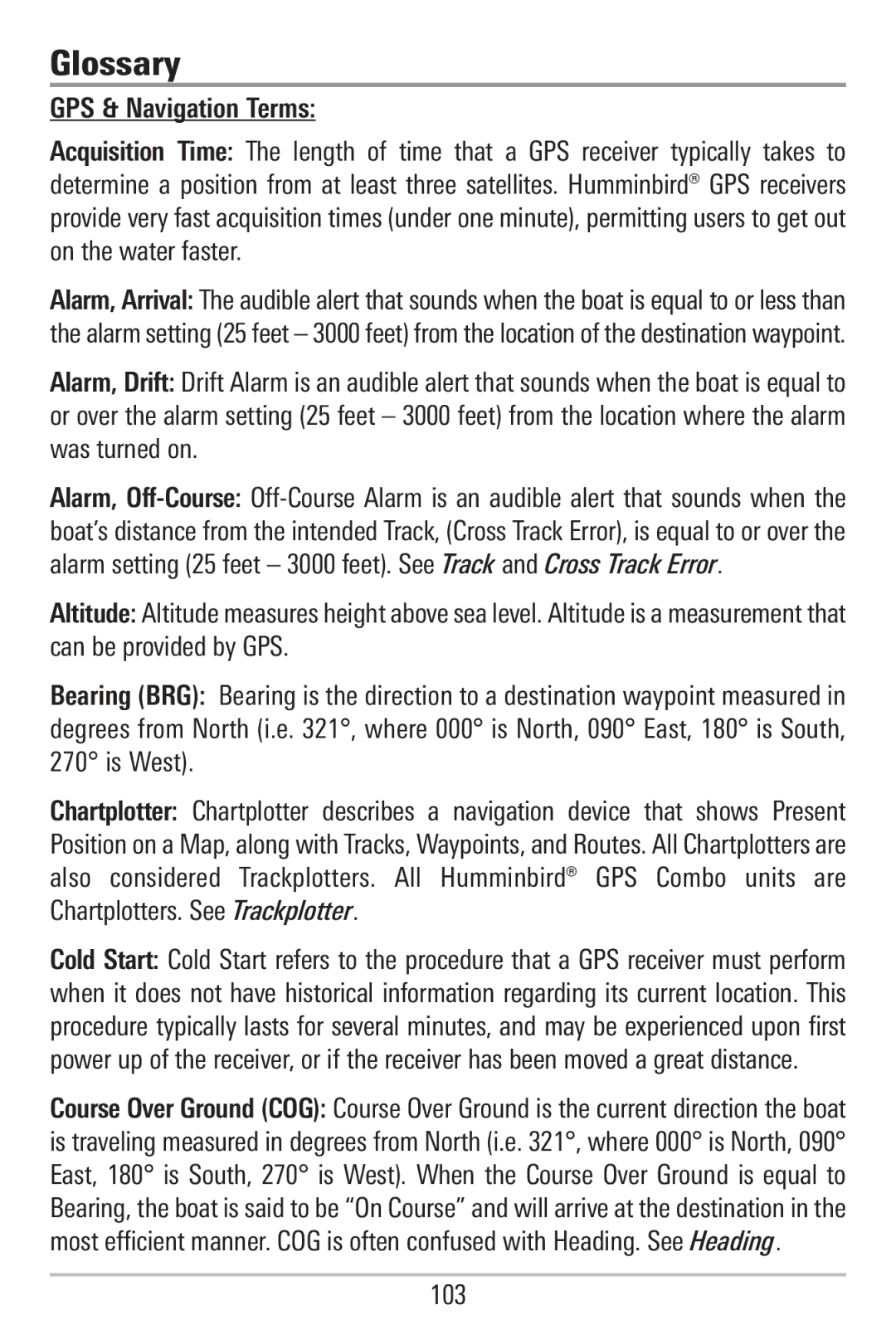
Glossary
GPS & Navigation Terms:
Acquisition Time: The length of time that a GPS receiver typically takes to determine a position from at least three satellites. Humminbird® GPS receivers provide very fast acquisition times (under one minute), permitting users to get out on the water faster.
Alarm, Arrival: The audible alert that sounds when the boat is equal to or less than the alarm setting (25 feet – 3000 feet) from the location of the destination waypoint.
Alarm, Drift: Drift Alarm is an audible alert that sounds when the boat is equal to or over the alarm setting (25 feet – 3000 feet) from the location where the alarm was turned on.
Alarm,
Altitude: Altitude measures height above sea level. Altitude is a measurement that can be provided by GPS.
Bearing (BRG): Bearing is the direction to a destination waypoint measured in degrees from North (i.e. 321°, where 000° is North, 090° East, 180° is South, 270° is West).
Chartplotter: Chartplotter describes a navigation device that shows Present Position on a Map, along with Tracks, Waypoints, and Routes. All Chartplotters are also considered Trackplotters. All Humminbird® GPS Combo units are Chartplotters. See Trackplotter.
Cold Start: Cold Start refers to the procedure that a GPS receiver must perform when it does not have historical information regarding its current location. This procedure typically lasts for several minutes, and may be experienced upon first power up of the receiver, or if the receiver has been moved a great distance.
Course Over Ground (COG): Course Over Ground is the current direction the boat is traveling measured in degrees from North (i.e. 321°, where 000° is North, 090° East, 180° is South, 270° is West). When the Course Over Ground is equal to Bearing, the boat is said to be “On Course” and will arrive at the destination in the most efficient manner. COG is often confused with Heading. See Heading.
